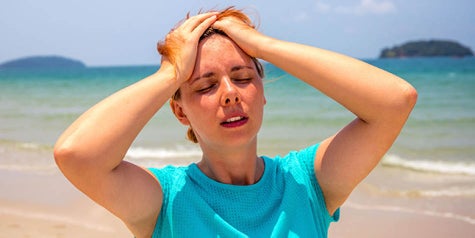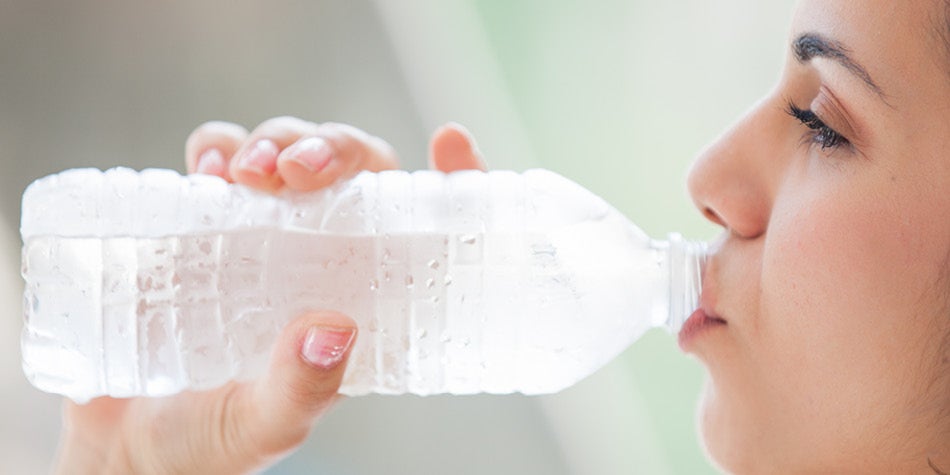Heat Exhaustion and Heat Stroke Prevention

During the summer months, people may become overheated easily and could suffer from heat exhaustion or even a heat stroke. The air is more humid, and it can often surprise individuals who are not prepared to stay cool.
Signs of heat exhaustion may develop suddenly or gradually over a period of time, especially with prolonged exposure to heat during work or exercise. Heat exhaustion signs include:
- Cool, moist skin with goose bumps when in the heat
- Faintness
- Dizziness
- Fatigue
- Heavy sweating
- Weak, rapid pulse
- Decreased urine output
- Muscle cramps
- Nausea
- Headache
More severe than heat exhaustion is a heat stroke. Symptoms of a heat stroke are:
- Hot, dry skin or profuse sweating
- Confusion, altered mental status and slurred speech
- Very high body temperature
- Loss of consciousness
- Seizures
Prepare yourself for heat if you know you will be exposed to it or in a hot environment. Be mindful of the hottest parts of the day and how you can stay cool when you’re out and about during that period.
If you suspect you have a case of heat exhaustion, find a space with cooler temperatures, such as in the shade, or in an air conditioned area. After finding a place to cool down, rest and drink cool fluids. If symptoms are severe, such as those associated with heat stroke, then you should seek emergency treatment immediately.
Here are ways to prevent heat exhaustion and a heat stroke:
- Drink plenty of water. Follow hydration tips and see water infusion recipes on page three.
- Wear loose fitting, lightweight clothing.
- Take precautions against becoming sunburned.
- Use caution with certain medications and sun exposure. Some medicine can affect body’s ability to stay hydrated and dissipate heat. Talk to your doctor about any concerns and prolonged sun exposure if you are taking medication.
- Never sit in a parked car or leave any person in a parked car without a cooling system/air conditioning for a long period of time on a hot day. Vehicles can rise 20 degrees in just 10 minutes time so be mindful of unattended individuals longer than a few minutes.
- Try not to schedule exercise or outdoor, strenuous activity during the hottest parts of the day (between 10 a.m. and 3 p.m.) if possible. Instead do these in the early mornings or late evenings.
- Limit time outside until your body is more conditioned to it. It can take a few weeks for you to adjust to heat if you’re not used to it so keep activity outside to a minimum until you are more comfortable, especially if you’re a person prone to heat exhaustion.
Don’t get overheated and miss out on fun happening this month. Stay cool so you can be well this summer.


